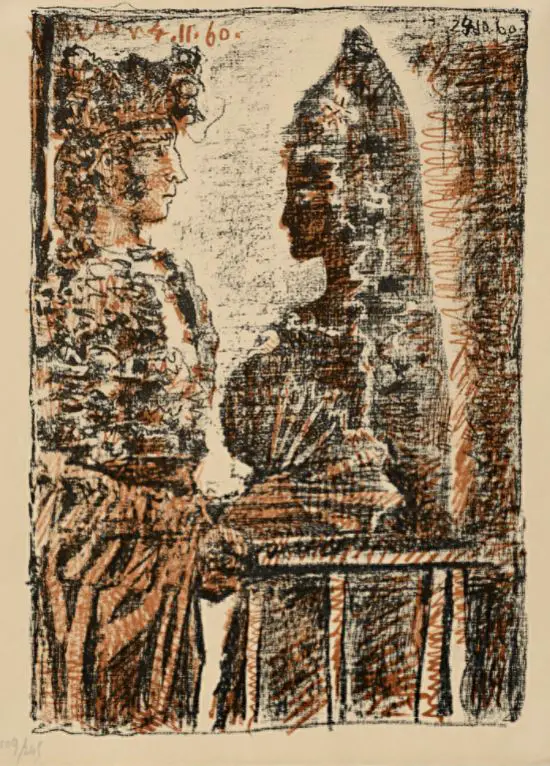Ljubljana related
STA, 29 June 2022 - After her predecessor launched proceedings for the eviction of several NGOs renting out the Culture Ministry's premises in Ljubljana's Metelkova Street, Asta Vrečko, the new culture minister, announced on Wednesday that the procedures would be terminated. The ministry has also cancelled plans to give the premises to the Museum of Natural Sciences.
Vrečko told the press after a meeting with the affected independent producers and organisations that her predecessor Vasko Simoniti and the previous government had pursued a fairly hateful discourse targeting NGOs.
While the ministry is aware of the infrastructure issues of the Museum of Natural Sciences, the ministry noted the building at Metelkova 6 had from the very start been intended for NGOs and that it needed to stay this way.
Vrečko announced the court proceedings meant to secure the eviction of 18 NGOs and six libraries would be terminated as soon as possible. Talks will probably also start in the summer on a much needed renovation of the building.
The director of the Peace Institute Iztok Šorli said on behalf of the users that today's meeting inspired optimism. He expects the new government to secure better conditions for NGOs in Slovenia when it comes to infrastructure.
STA, 24 May 2022 - A higher court ruling shows that it may prove harder than initially thought to evict the NGOs renting out the offices from the Culture Ministry in Metelkova Street in Ljubljana, which the ministry would like to renovate and give to the Museum of Natural Sciences, which is in dire need of more space.
The Ljubljana Higher Court has recently annulled the eviction order for the Centre for Slovenian Literature, a ruling the ministry plans to appeal.
The other NGOs in the same building meanwhile expect the court to pass similar rulings on their appeals against their eviction orders.
At the end of 2020, the ministry gave all tenants a year to vacate the building but did not offer them alternative offices, a plan the NGOs objected.
The ministry thus launched eviction proceedings against every individual NGO, which they separately challenged in court, Iztok Šori, director of the Peace Institute, one of the tenants, told the STA on Tuesday.
Šori labelled the ruling as "a great success and relief" for all the organisations which have been in an uncertain situation for a year and a half.
He sees it as a precedent for the rest of the NGOs there whose appeals are yet to be ruled on, and an end of the attempted eviction.
Similarly, Dino Bauk, a lawyer for the NGOs, said the case is more or less closed.
He said that most of the NGOs have a clause in their agreements under which they remain tenants until a new call to rent out the premises is published.
And since such a call has not been published, the argument that the building will be rented out to the Museum of Natural History also does not hold, Bauk explained.
The majority of lease agreements were signed with the NGOs in 1997 on the basis of a public call.
Since no new call was issued after a three-year period expired, the contracts were extended with annexes and eventually became permanent.
But the ministry has said earlier that no rental or lease agreement can be permanent, that some tenants have rented out the premises to a third party, and that some no longer meet the criteria for free-of-charge lease since they no longer have the status of an NGO in culture.
The culture community has largely seen the eviction plan as yet another of Minister Vasko Simoniti's attempts to undermine the independent culture sector.
STA, 18 November 2021 - An exhibition of Pablo Picasso's illustrations termed Picasso: Writing into Drawing, marking the 140th anniversary of the birth of the great artist, will open at the Museum of Contemporary Art Metelkova (+MSUM) this evening, bringing almost 260 mid-20th century illustrations from a private collection in Italy.
The exhibition was originally scheduled to open at Moderna Galerija, the national museum of modern and contemporary art, on 30 September, but was postponed due to significant flood damage the gallery suffered on the day before.
It will feature prints of illustrations for Max Jacob's Chronicle of Heroic Times, Pierre Reverdy's Song of the Dead, 20 Poems by Luis de Gongora, Count de Buffon's Natural History, Prosper Merimee's Carmen, Fernand Crommelynck's The Magnificent Cuckold, and for Picasso's own illustrated book Le Carmen des Carmen.
Pablo Picasso, Le Carmen des Carmen, 1949 (1964)
The museum said the illustrations on display showed how Picasso approached illustration of different literary genres or the illustrated book, which can slowly transform into an artist's book.
This is especially so for handwriting, which sometimes "spills over" directly into drawing or painting and consequently further away from the usual understanding of illustration.
"Picasso's prints are one of the hallmarks of his inexhaustible artistic research. He was constantly occupied by printmaking: from his first experiences with etching, dating back to 1899, and all the way to his death in 1973."
The extensive body of his prints covers all the techniques of artistic reproduction (etching, dry-point, engraving, woodcut, lithography, linocut), with the prints usually proving groundbreaking due to high quality and personal stamp in experimenting.
Illustrations of three books - Song of the Dead, 20 Poems and Chronicle of Heroic Times - shift one's perspective of Picasso's work because they are not necessarily immediately seen as Picasso's most typical examples of printmaking, the museum said.
The exhibition, curated by Marko Jenko and sponsored by the Spanish Embassy in Ljubljana, is accompanied by a catalogue.
Jenko has told the STA that the private collection is owned by two sisters who had been old acquaintances of the late Slovenian painter Zoran Mušič (1909-2005) and are admirers of his work.
STA, 9 February -2021 Several dozen riot police entered the AKC Metelkova alternative culture centre on Monday evening, ostensibly to check whether clubs are closed, a move that prompted protests by the proprietors of Metelkova clubs and the artists and craftsmen who have studios there.
The officers entered the Metelkova compound after policing a protest at the nearby Rog centre, which has recently been vacated and partially demolished, according to media reports.
The collective body running AKC Metelkova issued a press release Tuesday condemning the action by the "fully armed riot police."
They said around 40 "robocops, accompanied by officers in uniform, flooded the Metelkova grounds, tried to enter the clubs and other premises, and intimidated passers-by."
The police did not provide a reason for their presence beyond saying they were there because a rally had finished, "which they later changed into a story about 'customary control' of bars."
The Metelkova collective described this as "inadmissible intimidation and a forecast of violence".
The Ljubljana Police Department told the STA later today that the force policed two protests in central Ljubljana on Monday - a rally scheduled for noon in Republic Square and another one at 5pm that started in Metelkova.
Since the latter had not been registered and there had been information warning of possible violation of the public order, police presence was boosted and riot police dispatched to ensure law and order was maintained, the press release reads.
The police dismissed allegations of intimidation attempts, which circulated in media and on social media, highlighting that police officers were merely professionally and within their powers doing their job.
The appearance of riot police triggered social media uproar yesterday evening, raising concerns that after the demolition of Rog, AKC Metelkova as the only remaining organised alternative culture centre in the capital was being targeted.
It came just days after a far-right group that call themselves Yellow Vests, which support the government, took a photo at AKC Metelkova with the banner "Let's Demolish Metelkova Too".
AKC Metelkova said the group "no longer conceals their neonazi ideology, tattoos, symbols and greetings" since they are "well aware that the ruling structures provide them with safety and legitimacy for the most abhorrent political ideas".
The members of the group fled from the Metelkova grounds before the arrival of the police, the press release added.
Responding to a query by the STA, the Ljubljana city municipality said that AKC Metelkova was a protected alternative culture and subculture venue and "one of the city's treasures where we nurture and respect diversity and co-exist".
The city condemned the presence of "so-called Yellow Vests, neonazi groups or any other violent groups" in Metelkova, saying that such incidents attempted to revive nazi ideology, the greatest evil of the 20th century, and did not have a place in the capital.
The municipality also said that drawing parallels between Yellow Vests' actions in Metelkova and the planned Rog renovation was inappropriate as the centre was not demolished in the name of hate but to make it accessible for everyone.
The opposition Left also responded to the developments by describing Monday's arrival of the riot police to the Metelkova grounds "without any reason or serious cause" as another scene in the series of displays of the police strength, referring to cordoning off Republic Square last year ahead of anti-government protests and Ljubljana centre during the 2020 Statehood Day ceremony.
"Police officers carrying automatic weapons without any reason" in Metelkova, "just another part of the city", should raise all the red flags, thinks Left leader Luka Mesec, who blames the Interior Ministry for this.
The Left intends to request an emergency session of the parliamentary Petitions, Human Rights and Equal Opportunities Commission as the party believes the developments are moving the country from a place of the democratic order to the reign of terror.
Over the years AKC Metelkova has frequently been a target of hate crime, in particular its two gay and lesbian clubs.
STA, 4 January 2020 - Moderna Galerija, the national museum of modern art, will put on a major exhibition of works by Slovenian artist Tobias Putrih this year and showcase illustrations by Spanish artist Pablo Picasso. The Museum of Contemporary Art Metelkova (+MSUM) will showcase photographs by Božidar Dolenc.
Born in 1972, Tobias Putrih, who lives and works in Cambridge, Massachusetts, deals with 20th century avant-garde in his conceptual and materially ephemeral projects, focussing on utopian and visionary concepts in architecture and design.
He conceives architectural changes for public spaces such as cinemas, libraries, galleries and universities - building temporary places from paper, cardboard, wood and light, Moderna Galerija writes about his work.
The retrospective will offer a good insight into his work, in sculpture as well as architecture. His projects of the last two decades will be presented, including interior design installations, monumental installations, objects and drawings.
The exhibition is to be held from 4 February until 2 May.
Pablo Picasso: Illustrations, which will be on show from May until September, will combine a number of Picasso's works from a private collection from Trieste.
The collection is owned by two sisters, who were good friends of Slovenian painter Zoran Mušič (1909-2005). The Slovenian part of the collection, which includes works by Mušič, will be donated to Moderna Galerija after their death.
The exhibition pays tribute to them, presenting works by Picasso that also inspired Slovenian artists. Picasso's illustrations of poetry, opera and other works will be on display.
From October to December, Moderna Galerija will host Greater Than Me: Contemporary Art and Yugoslavian Heritage, which the museum is preparing for the Italian national museum of 21st century art MAXXI in Rome, where it will be displayed in the summer.
The Museum of Contemporary Art Metelkova (+MSUM) will meanwhile host the first major posthumous exhibition of one of the most acclaimed photographers of the second half of 20th century in Slovenia. Autography, Enigma, Rebellion: Photography by Božidar Dolec is based on a collection the museum obtained in 2016.
Apart from his street images reflecting his non-conformist spirit, almost painful fierceness and meaningful bitterness, the exhibition will also present Dolen's comprehensive collection of photos capturing the alternative culture of the 1980s, according to the museum. It will between 23 February and 6 June.
Between 24 June and 3 October, the exhibition Political Performance of the 1990s in the area of former Yugoslavia will explore the events in periods of war and after the wars in Yugoslavia, and the connections between art performances and political and ideological structures that created them.
STA, 5 November 2020 - Discussing late on Wednesday the planned eviction of NGOs from the Metelkova compound, the parliamentary Culture Committee decided after almost five hours of debate to call on the government to provide new premises for the NGOs by 1 June 2021.
The Culture Ministry has called on the NGOs using the state-owned facilities at Metelkova 6 to move out by the end of January 2021 because of renovation works.
Nataša Sukič from the opposition Left said the NGOs had been notified of the eviction on the day that epidemic was declared again. She said no alternative had been offered or an opportunity for reaching some kind of agreement.
The Left had proposed that the committee call on the ministry and the government to abandon its plans to evict the NGOs and that in case of a renovation a new temporarily location be found for the NGOs. After the renovation, they should be able to return to the compound under the same terms. However, the proposal was voted down.
Culture Ministry State secretary Ignacija Fridl Jarc said the ministry had all the necessary legal ground for emptying the building. She said currently 18 users of the compound were registered at the ministry, ten of which were culture NGOs.
She said the notification to the users had been sent on 16 October, while the epidemic was declared on 21 October.
According to Fridl Jarc, the procedures regarding Metelkova begun years ago to solve the spatial issues of the Museum of Natural History. Culture Minister Vasko Simoniti also confirmed that the premises in Metelkova are to be used by the museum.
Sukič said the ministry had the right to terminate lease contracts with the users of the compound but with a one-year and not a three-month notice. She called for dialogue between the ministry and the NGOs.
Marko Koprivc, MP for the opposition Social Democrats (SD), sees the ministry's move as an attempt at subjugating all social subsystems in the country. Lidija Divjak Mirnik from the Marjan Šarec List (LMŠ) also called for dialogue.
Coalition MPs Jožef Lenart from the Democrats (SDS) and Aleksander Reberšek from New Slovenia (NSi) pointed to the fact that the users of the Metelkova compound were renting the spaces for free and that not all associations had such privileges.
Violeta Tomić from the Left stressed these were NGOs and professional organisations. She also wondered why the building must be emptied so quickly when the funds for renovation are planned only in the 2023 budget.
STA, 21 October 2020 - More than a dozen independent producers and non-governmental organisations face the threat of eviction from the state-owned premises in a former military compound in Metelkova Street in Ljubljana that witnessed some of the landmark events leading to Slovenia's independence.
Some of the NGOs that have their premises in the building received an appeal from the Culture Ministry on Monday that they move out by the end of January 2021 or face a court-imposed eviction.
The ministry says the building is in a bad state of disrepair and is slated for renovation, but the NGOs say that budget funds for the planned renovation are not planned until 2023 and are refusing to leave.
The NGOs say the ministry has not offered them substitute premises or engaged in dialogue with them, which is why they understand the move as an "attack on civil society and independent culture in the desire to prevent the activity of a critical public".
The building is home to several internationally renowned independent producers and organisations active in cultural and artistic production, research and advocacy of minority and marginalised groups, including the Peace Institute, Zavod Maska, Škuc, the producers of City of Women and Kino Otok film festival, dance company PTL, and the arts collective NSK.
In a press release on Tuesday, the organisations noted that their work can be traced back to the legacy of the movements that "in the 1980s promoted the society's democratisation and demilitarisation, thus decisively contributing to the adoption of a democratic constitution after independence".
The compound was where Janez Janša, the incumbent prime minister, was detained by the Yugoslav army in 1988 before being put on trial by the military for allegedly divulging a military secret in a newspaper article, along with three other defendants in what is known as the JBTZ process.
The quartet's arrest and subsequent trial triggered massive protests and acted as a catalyst for Slovenia's democratisation and independence.
One of the key symbolic events in the efforts for democratisation and demilitarisation as pointed out by the NGOs was in 1993 when culture workers, artists and activists occupied what used to be the Yugoslav army's Ljubljana headquarters.
"Ever since it has constituted a public space where we respect diversity, solidarity, dialogue and critical thought. Those values and historical facts are what the current government seeks to erase, even though the prime minister used to count himself among pacifists," the NGOs say.
They say the building in Metelkova 6 is the only one that the Culture Ministry has allocated to independent cultural, artistic and research organisations working in the interests of the public, but that the ministry chose to "withdraw our basic infrastructure amid the pandemic".
The building is the only part of the south section of the Metelkova compound that is yet to be renovated. Owned by the Culture Ministry, the section is home to three museums and several other cultural institutions.
The north section of the compound, known as AKC Metelkova Mesto, has developed into an alternative culture hub after being squatted by artists in the early 1990s as the city authorities, which assumed ownership of that part of Metelkova, started pulling down the buildings. The former military prison has been turned into a hostel called Celica.
The NGOs insist that they will "not leave the building and will stand up full force against attacks on the civil society, independent culture and democracy".
In response for the STA, the Culture Ministry said the building concerned was unsafe to reside in: "The main structure is undermined, the roof is leaking, part of the roofing has fallen off and damaged a car in the parking lot."
The ministry noted that the building, which is not earthquake safe, had been planned for urgent renovation under the previous government, and to avoid any risk it urged the 18 users to move out so the building could be refurbished.
The ministry said that none of the users of the building have been paying rent and that some have not even paid for their running expenses.
The NGOs facing eviction have been backed by the centre-left opposition, in particular the Left, and an online petition signed by more than 2,300 people, which accuses the government of "trying to destroy the cultural sector, and in particular NGOs".
STA, 1 November 2019 - A group of unidentified persons stormed Tiffany Club, a popular venue for LGBT events at the Metelkova Mesto alternative arts centre in Ljubljana, early on Friday morning, in what circumstances suggest was an attack motivated by hate.
The perpetrators, smashing in the club's entrance door and windows and threatening the personnel, fled the scene when the police arrived. The news of the attack was published on the club's Facebook page.
According to the police, the attack resulted in a few thousands euro in material damage.
The attack, during which the perpetrators vandalised the club's interior as well, was carried out after the venue closed in the early morning hours.
The personnel were unharmed, having barricaded themselves in while the attackers were trying to get to them, smashing on the walls and doors and hurling homophobic insults at them.
The police said they were treating the attack as an anti-LGBT hate crime.
The Tiffany Club shares the building with the lesbian Monokel Club, where a community response event will be held this evening, raising awareness about the importance of resistance and fight against such crimes.
The non-profit cultural organisation ŠKUC condemned the incident, expressing concern over the rise in anti-LGBT hate crimes and calling for the issue to be tackled.
The incident was also condemned by the Legebitra NGO and Equal Opportunities Ombudsman Miha Lobnik.
According to Lobnik, the attack on the Club, which is one of the rare LGBT venues and safe spaces in Slovenia, can be considered an attack on the entire LGBT community. He also stressed the importance of a zero-tolerance policy regarding violence against any minority.
Prime Minister Marjan Šarec wrote on Twitter that the attack was "a cowardly, pathetic act". He also pointed out that such violent actions were unfortunately not uncommon in Slovenia.
Meanwhile, Legebitra warned that the rise in anti-LGBT hate crimes was in part the result of normalising hate speech in politics and society in general.
A little over a month ago a security guard at another Ljubljana club, K4, was fired after insulting a guest with Nazi greetings at a gay event, and in early October a prominent gay activist was assaulted in Murska Sobota and sustained serious injuries in what he believes was a homophobic attack.
This Saturday, 22 June (2019) is the 8th annual Day of Japan (Japonske Dan) in Ljubljana, organized by Genki Center and the Embassy of Japan in Slovenia. We got in touch with Maja Rome, of the Genki Center, and learned more about her work, the Center, and the day itself.
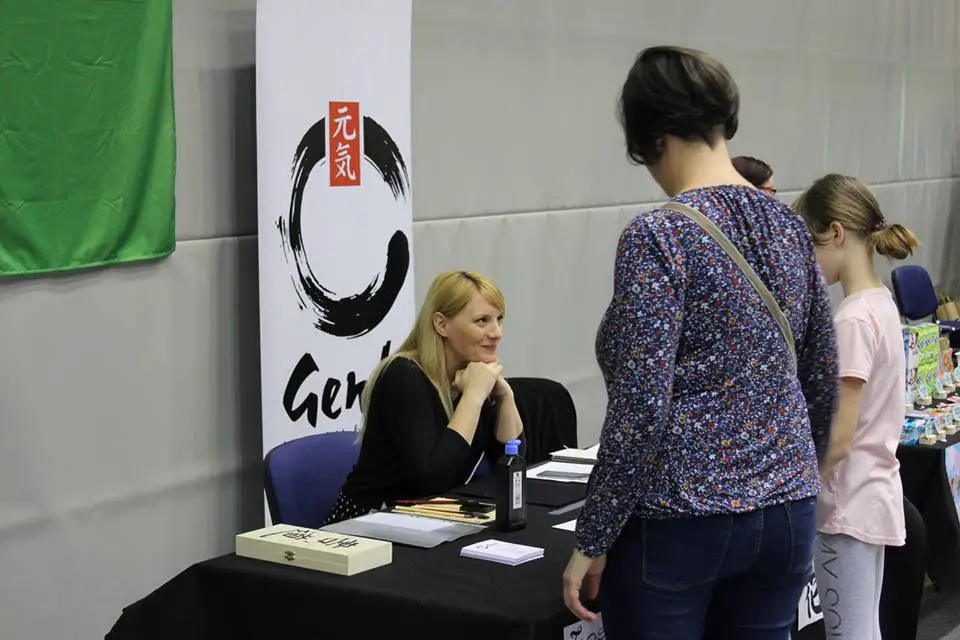
What's your association with Japan?
I am a Japanologist and a sociologist of culture, graduate of the Faculty of Arts in Ljubljana and also studied at Joshi daigaku in Tokyo, Japan. I am a founder and a CEO of Genki Center, and also a president for the organisation behind the Day of Japan event. As a professional in the fields of Japanese culture and language, and a passionate learner of the culture and its language, I carry with me strong passion to promote Japanese culture to Slovenian people. Since it’s very rich in its history, folklore and heritage, many new areas of interest can be found in this island nation.
What is Genki Center?
It’s the first private Japanese educational and cultural centre in Slovenia. We specialize in this area and provide Slovenian people with different kinds of support regarding this culture and language. Our primary activity is teaching Japanese, we have a team of Japanologists and also a native speaker who is a professor of Japanese. We strive for a modern techniques of teaching and provide a very high quality way of learning the language and culture. Together with our clients we create a strong community of people who have the same interests. That is why we are not a language school, but a community of people, organizations and interest groups brought and kept together with the same aim of exploring different aspects of Japanese culture and language.
As part of this work we provide support for companies, advising them on business ethics and language norms, as well as Japanese business relations. We also offer various events, workshops and lectures to teach Slovenian people about Japanese culture, with some children. For example, we have been organizing Japanese summer camps and different Japanese themed events.
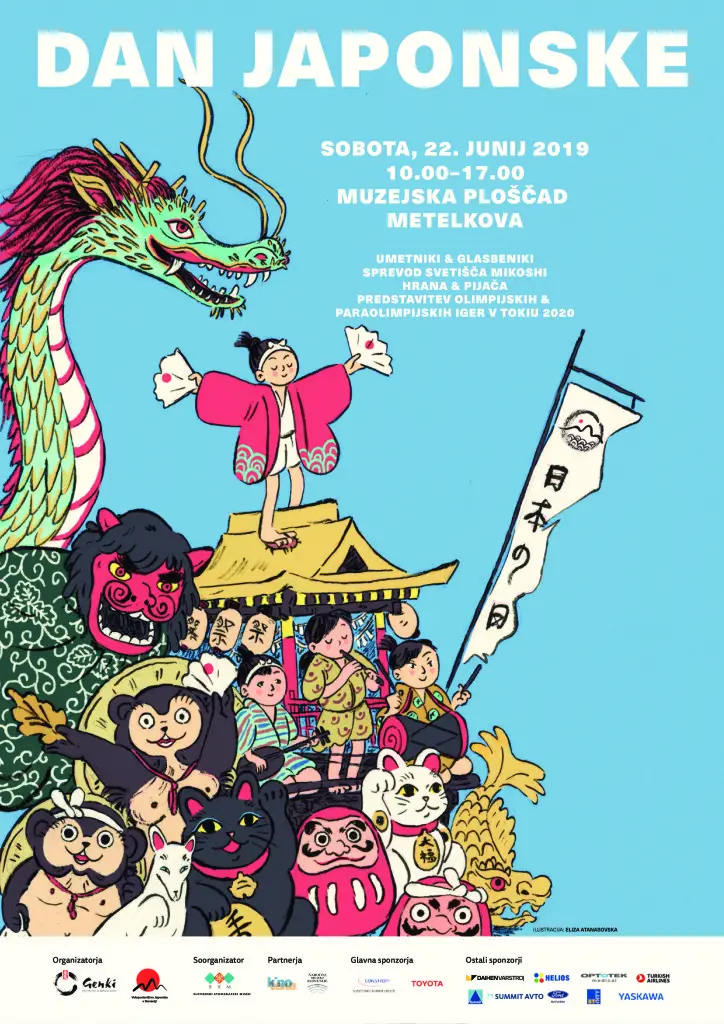
This Saturday, June 22 (2019) is the Day of Japan. How did that start?
This year will be the 8th Day of Japan festival, which has two organizers. The first is Genki Center as initial idea provider and organizer, and the second is the Embassy of Japan in Slovenia, which has co-organized the event for the last seven years.
The idea for the event came after my first small event in Kranj, with the opening of Kranj's new library in 2011. After the success of the “Japanese Evening” my college and I planned to organize our first event at lake Zbilje with the help of local tourist organization. That was in 2012, with the 20th anniversary of diplomatic relations between Japan and Slovenia were taking place, and so we invited the staff at the Embassy of Japan in Slovenia, and a sakura tree as planted to mark the event. After that the Embassy invited me to continue organizing the event with them, and we have been working together successfully ever since.
It may only be one day, but it’s a lot of work. The organization takes about half a year to plan, and every year with the help of volunteers we build an event site from scratch and also tear it down once it is finished.
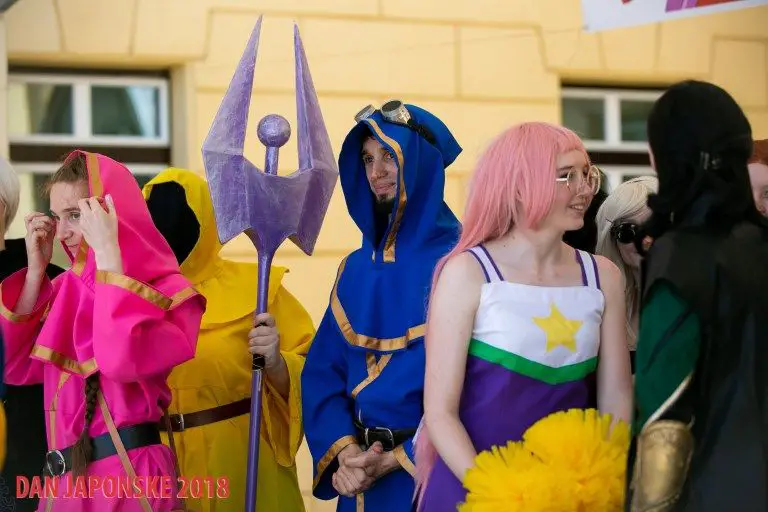
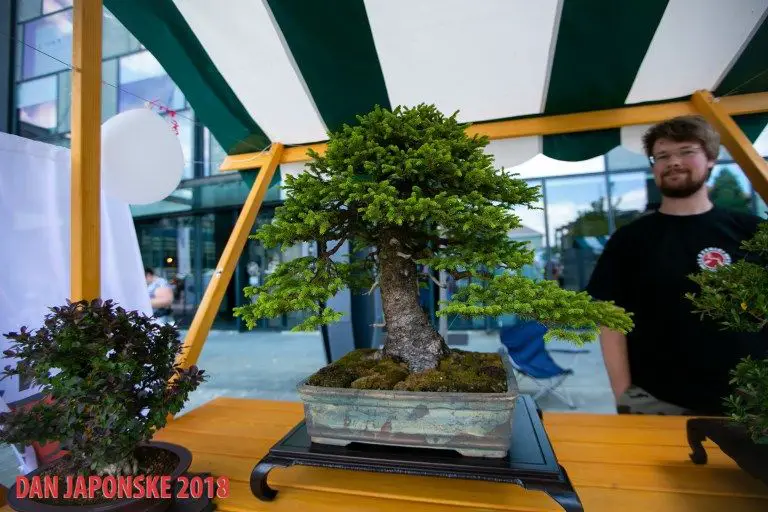
The idea is to bring together the many people in Slovenia who are somehow connected with Japanese culture in a daily life, and also companies and individuals. And it’s not just about showing Japan to Slovenians, but also a way for Japanese people living in Slovenia to feel a part of the community and share their culture with others.
The Day of Japan is a single day event where we strive to bring together as many different aspects of Japanese culture in the same place, at the same time, and a way for people to basically visit the country without leaving Ljubljana. In a single location [the Metelkova museum quarter] we have more than 80 activities, 50 stands, two stages and one lecture hall where we cover many different cultural aspects of Japan – the language, arts, sports, food, crafts and stores. We want to offer as many quality services, products and activities as we can find in Slovenia that are related to Japanese culture. We’ve also invited some guests from Japan, who are willing to enrich the event. This year there are more than 250 participants who are making it all possible, along with more than 30 volunteers.
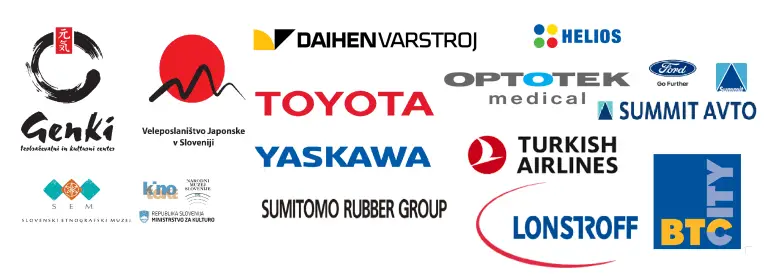
As well as the Embassy of Japan, the event gets a lot of support from companies, and this year there’ll be something from Toyota, Sony, Turkish Airlines (who will be giving away two plane tickets to Japan), BTC City will be there its Society 5.0 project, along with people from the Olympic Games committee and the Paralympic Games committee, who will have a special Olympics corner.
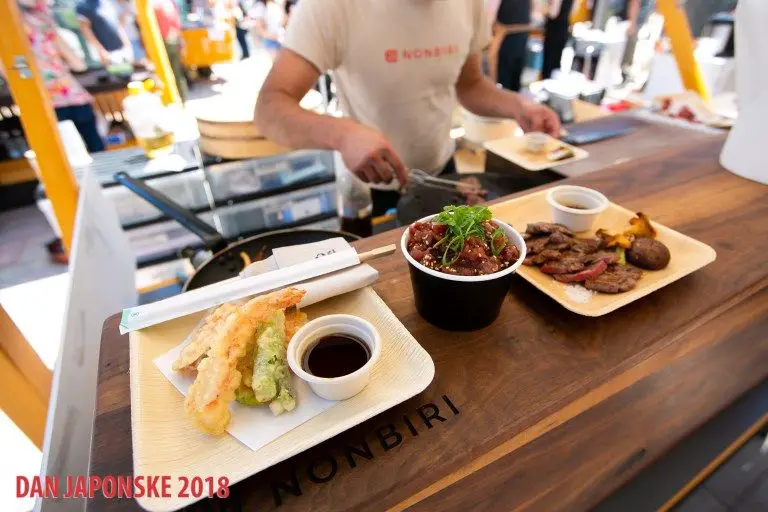
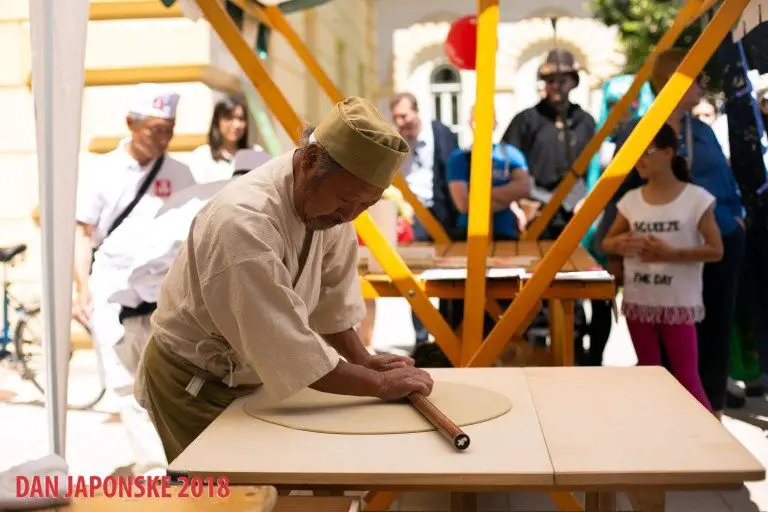
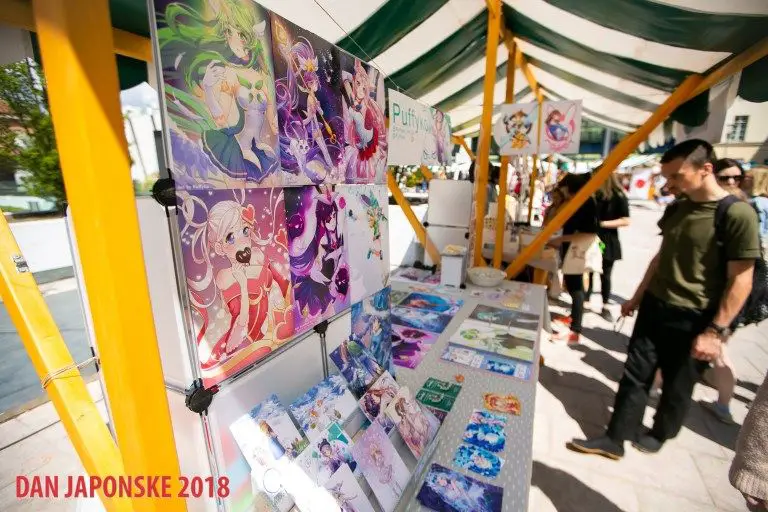
What can people expect to find there?
Among activities we are offering are many martial arts, such as karate, aikido, kyudo, ninjutsu, iaido and kendo, and judo. We also have many artists, young ones who are specializing in Japanese anime and manga, and they will provide us with unique artwork. There will be traditional crafts, too, like ceramics, wooden lacquer, kanzashi and tamari balls. Also in the spiritual area we have zen gong meditation, reiki, and we used to have shiatsu. There will be bonsai, ikebana and Japanese calligraphy, and for younger people there’s a manga corner and cosplay.
For food, we have a sweets corner and food corner, with quite nice variety of Japanese different dishes. The people preparing the Japanese food are trying to stick to the original taste, which is quite difficult to do in Slovenia with regard to finding high quality ingredients. We’ll have a school for Japanese language, Japanese literature, books and travelling to Japan. Every year we also have a children’s corner with many Japanese arts to them to enjoy.
Beyond that, in the lecture room of the Ethnographical Museum of Slovenia we have a photo exhibition, a lecture on traveling to Japan, and workshops for ikebana and calligraphy. On the main stage we have a concert of Trio Tenorjev [Three Tenors], traditional buyo dance, and Japanese pop songs, as well as much using a koto, a traditional instrument.
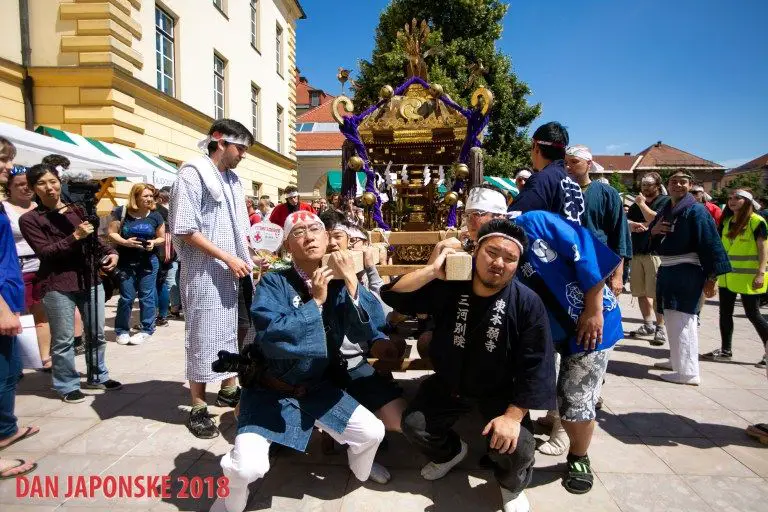
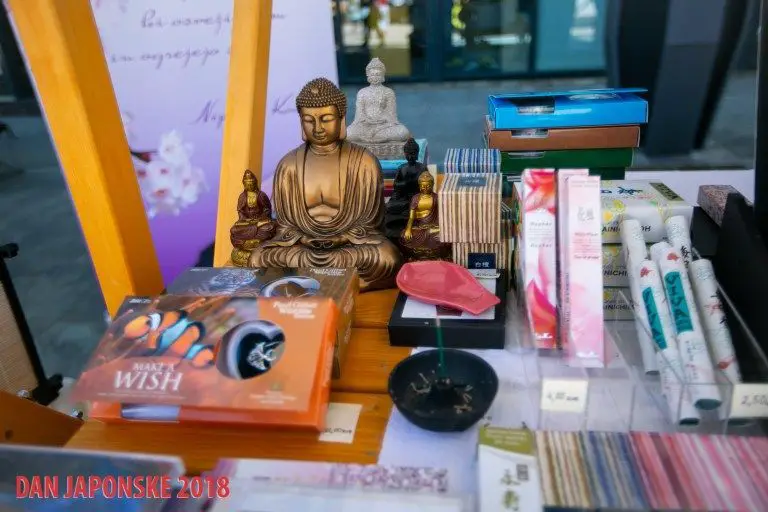
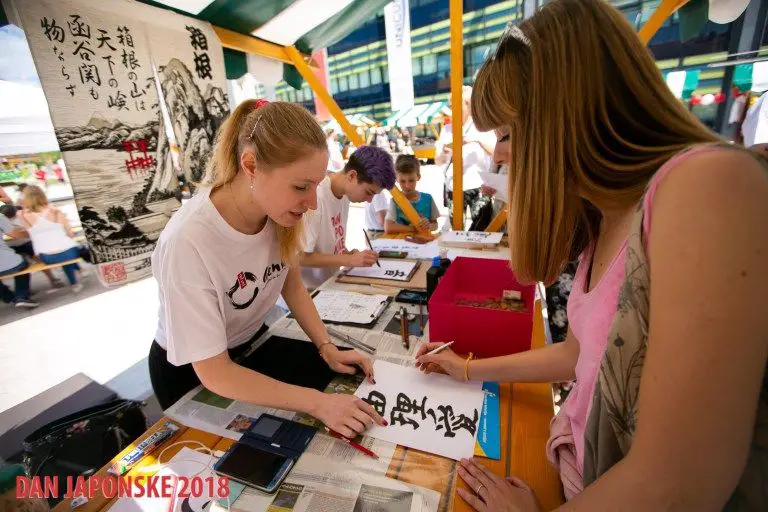
One very special thing will be a portable shrine brought from Kasuga jinja, close to Yokohama, carrying many Japanese deities in order to bless the area with good fortune and luck. It should be a great event. Last year we had more than 3,500 visitors, and hopefully this year the number will be even greater.
You can find the schedule for the Day of Japan (Dan Japonske) here, and follow Genki Center at its website or on Facebook. The event takes place in the museuem quarter of Metelkova, shown on the map below.
Ljubljana isn't a 24-hour city, and you're not going to get fine dining at 3am. You understand these realities, and are aware this is not what you should be doing. That whatever you did to end up here, at this time and in this condition, must have been a significant jolt to the system. And what you need is a place to chill out, a bite to eat and maybe a beer, a person who’s not going to ask what you’ve been doing or why you aren’t in bed, but simply what you’d like to order.
Related: Five places to buy cigarettes at night in Ljubljana
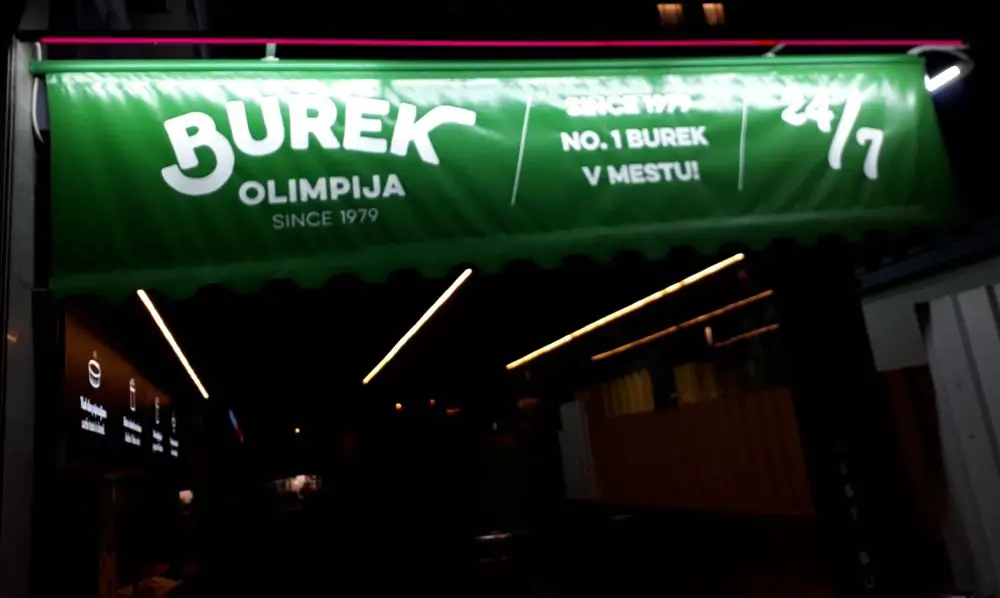
Burek Olimpija is a little hard to find, but not far from the train station or Intercontinental Hotel. Photo: JL Flanner
Whenever the hunger strikes you, at 5 after midnight, 3am or 6, there are just a few places where you be assured of a welcome in Ljubljana, with lights, people and commercial activity focused on the provision of carbohydrates, protein, and fat, seasoned with sugar and salt. Pizza, burek, kebab, burger and fries. Soda, coffee and beer. You know the kind of places.
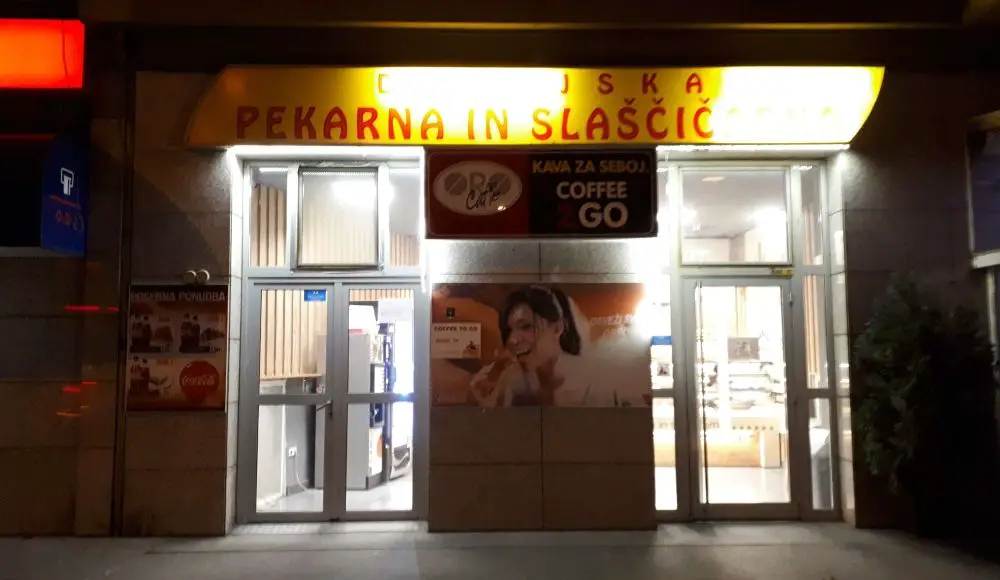
Baked good and coffee, but no seats, opposite the station. Photo: JL Flanner
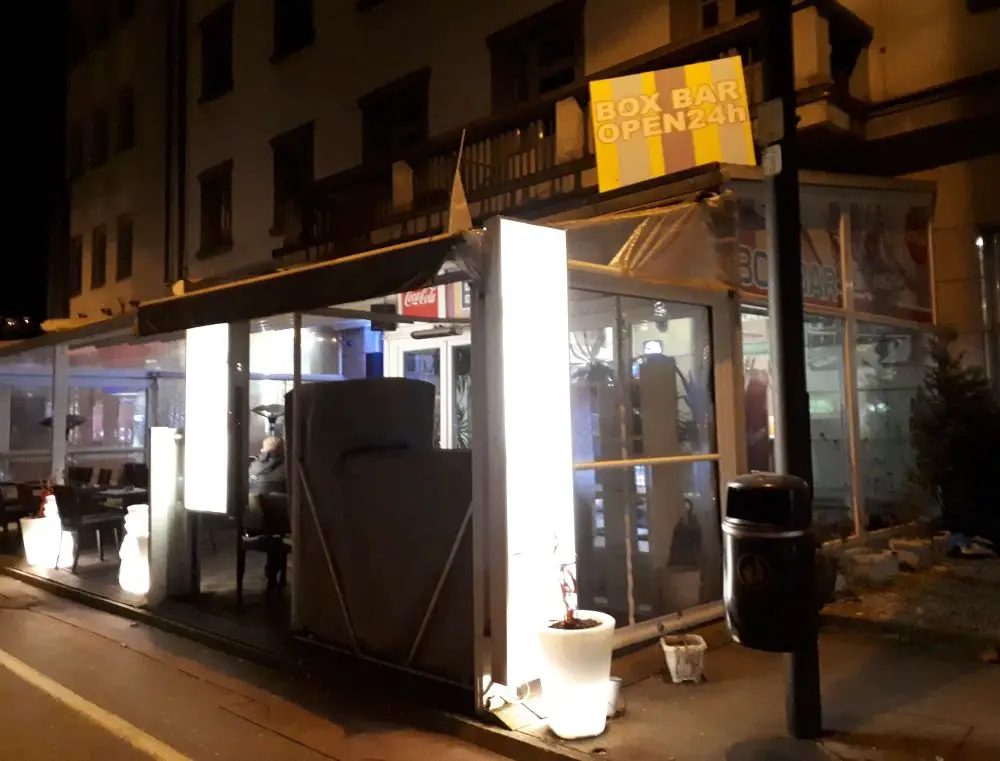
The Box Bar looks like the kind of place you can drink 24 hours a day. Photo: JL Flanner
Between midnight and 6am your best options for food in the capital, as a tourist or visitor without access to a kitchen of your own, are mostly clustered around the train station, close enough to each other that you can browse before making a decision.
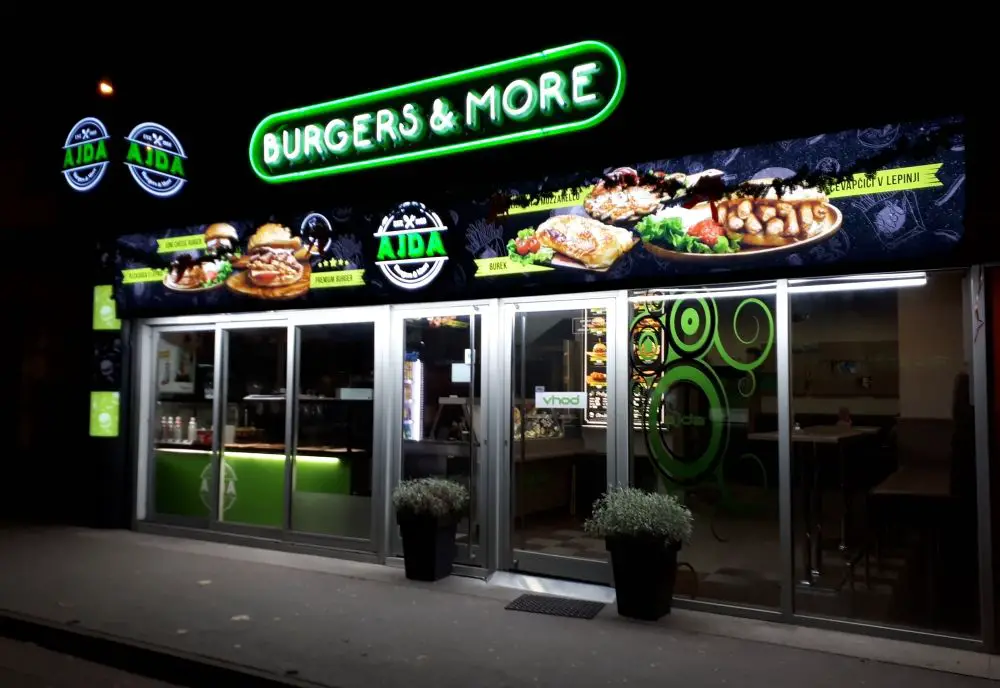
Fans of fried meat and bread are in for a treat, no matter what the clock says. Photo: JL Flanner
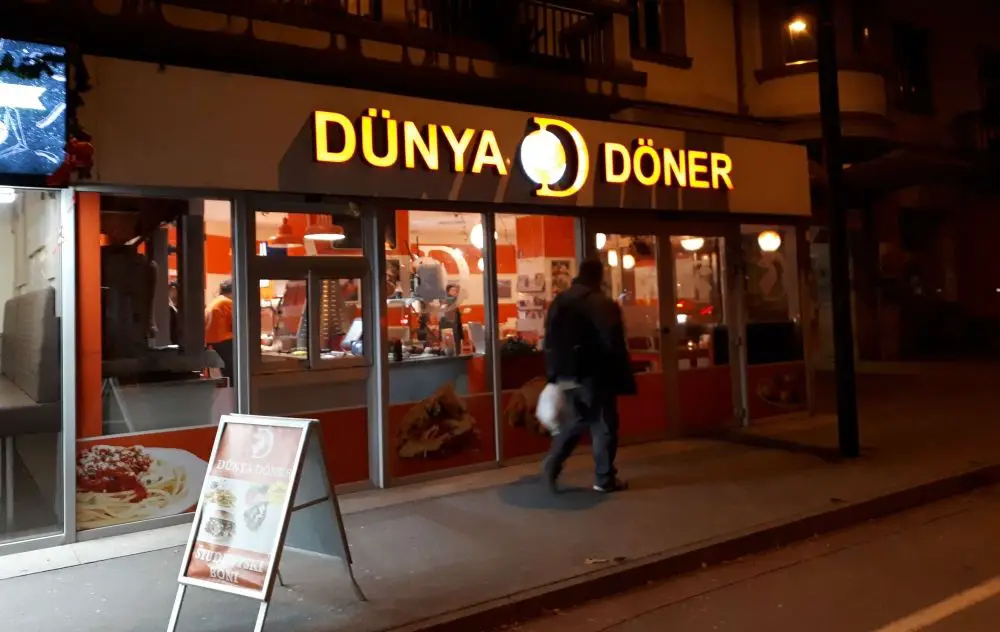
And next door there are kebabs. Photo: JL Flanner
Facing from the station and going from left to right you have a bakery, a café bar (where you can sit and drink till sunrise), a burger place, and a kebab store. Going back a few streets and you can find two burek places. Burek Olimpija has been selling these pastries since 1979, and claims to have been the first such store in the city. Currently it’s slightly hard to find as there’s roadworks obscuring the front of the store, but the bold green signs can still be seen. A rival provider, Nobel Burek, is just a short distance away on Miklošičeva.
On Trubarjeva cesta, next to Dragon bridge, there’s Šeherezada, a fresh, fast Turkish restaurant with kebabs, falafel, salads, and more, and a best option for food well after midnight on the street. Just up the street from this, heading out of the centre, is Abi Falafal, a clean, well-lit place that offers an extensive menu offering Arabian food and open until 01:00 from Thursday to Saturday. (In general, Trubarjeva is the best street for ethnic food, and you can learn more about that here.)


